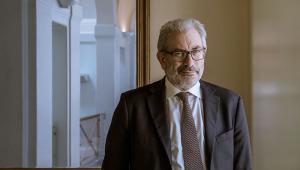The London Assembly is unloved and unheralded. Whilst Londoners have embraced the capital’s mayoralty, the Assembly has little power, and is too often ignored and overlooked. If London is to be given the substantial package of powers it needs to maintain its global status and tackle the challenges our capital faces, then a radical overhaul of the Assembly is urgent. In particular, the Assembly needs a much stronger brief to monitor and evaluate public expenditure throughout London.
London has unique challenges – the starkest inequality, the highest cost of living and most severe housing crisis – but too often decisions made in Whitehall and Downing Street are just as divorced from the needs of those in Wembley as they are from those in the Western Isles.
That’s why I have introduced the London Devolution Bill, to devolve a series of powers to London including control of property and income taxes, skills and training budgets, local NHS services, as well as powers over the housing market and responsibility to introduce and enforce a living wage.
But such a devolution settlement leads to the question of whether London’s local government is capable of dealing with such a substantial package of new powers?
At the moment, the London Assembly does not have any real power, and a serious debate is needed over its functions, membership and role.
In theory the Mayor’s budget can be rejected if two-thirds of Assembly members vote it down. In practice, everybody knows this isn’t going to happen and so the one significant power the Assembly holds has never actually been used. This power should be retained but the threshold lowered. If 50% of Assembly members veto the budget then the Mayor should have to go away and rethink. The Mayor does need to take the Assembly seriously, yet neither occupant of the office since 2000 – Ken Livingston and Boris Johnson – ever really have. Giving Assembly members a real chance to veto a budget would force the Mayor and his or her deputies and senior staff to take the Assembly more seriously and encourage a more useful dialogue.
The Assembly also needs to take on a greater role in examining how public money is spent, rather than just why it is spent. London needs its own Public Accounts Committee to get Londoners more value for money and to be able to challenge not just those senior officials who answer to the Mayor directly, but also council chief executives, London arts and sports bosses and all those who get public money but aren’t currently answerable to Londoners as to how they spend it. I’m sure London’s own Margaret Hodge could provide excellent advice on how such a committee could be made to work.
The membership of the Assembly needs an overhaul too. That’s not to decry the work of current Assembly members, but given the important role that London’s 32 boroughs play in delivering not just the Mayor’s agenda, but central government plans too, council leaders should be brought into the Assembly, effectively as part-time members. Harnessing the expertise, experience and talents of London’s council leaders can only enhance the quality of debate and decision-making.
Lastly, the Assembly needs the power to pass laws to match the extra responsibilities devolved to it. More of the rules currently set in Westminster that affect London should be decided in the Assembly, but at the moment decisions over housing and planning rules or the future of the NHS in London are taken in Whitehall, debated by the SNP, Ulster Unionists and a host of non-London English MPs in Parliament.
There are many areas where this would improve on current responsibilities. The minimum wage in practice gets decided now in the Treasury (yet the cost of living in our city is vastly different to the rest of the country), while a London tourist tax can only be introduced on the say so of George Osborne. These decisions should be decided on the floor of the London Assembly by Londoners themselves.
London has a lapdog when, to tackle the housing crisis and sort out the NHS in our city, it needs a bulldog. Overhauling the Assembly is fundamental to Londoners sorting out London’s challenges in the future. London needs its Assembly to be more than just the talking shop it is at the moment. What was created in 1998 was right for its times but a new energised and empowered Assembly is needed to raise the game of both the Mayor and London government as a whole.




















